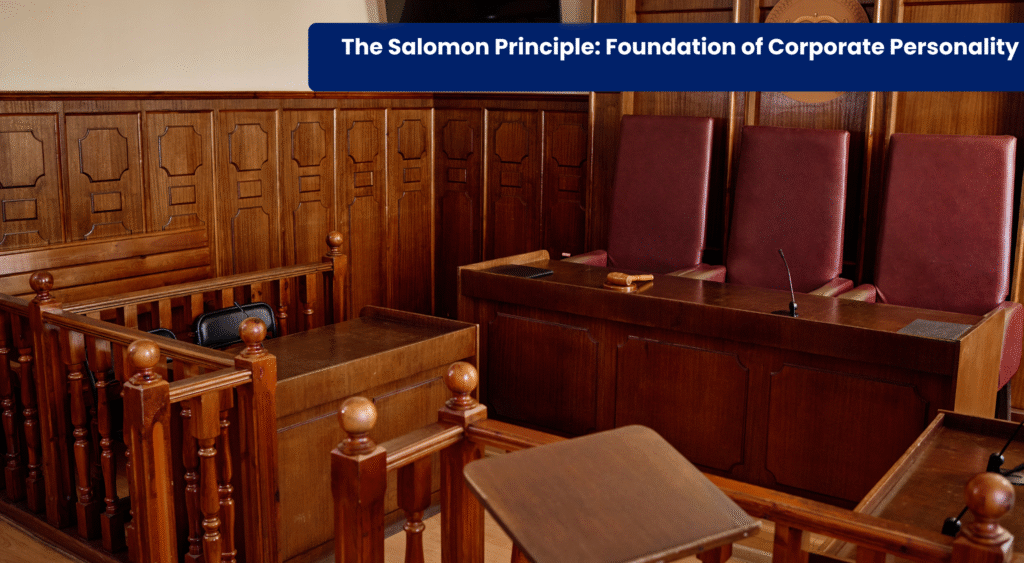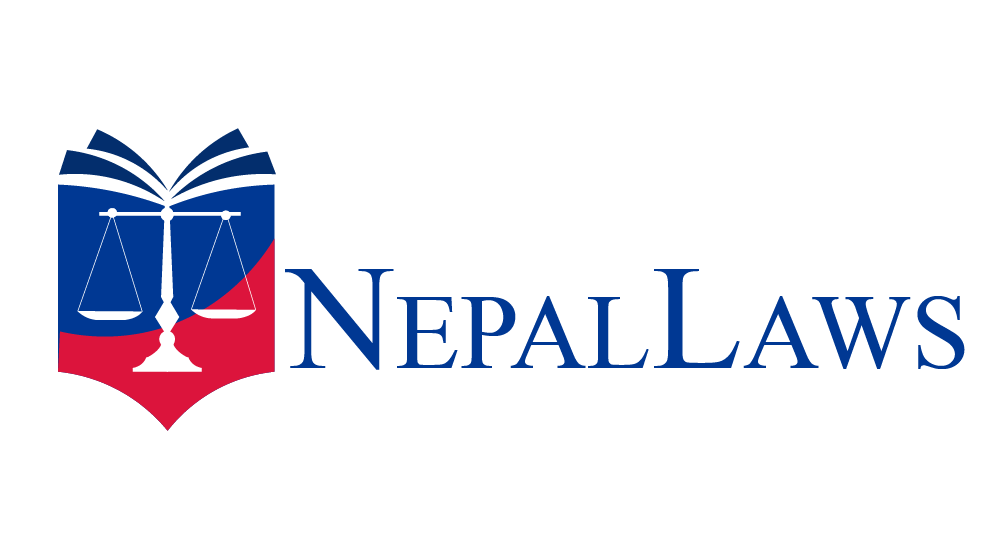A company is more than just a business, it is a legal entity composed of directors, shareholders, promoters, and other stakeholders working together to achieve business goals. Under the Companies Act, 2063, once a company is incorporated, it becomes a separate legal entity, independent of its owners and managers. This legal separation, known as corporate personality, allows the company to own property, enter into contracts, sue, and be sued, and continue its existence regardless of changes in ownership or management.
However, this principle is not absolute. In certain situations, the law allows courts to look beyond the corporate structure to hold individuals accountable. This is known as the doctrine of piercing or lifting the corporate veil.
The Salomon Principle: Foundation of Corporate Personality
The cornerstone of corporate law is the Salomon v. Salomon & Co Ltd (1897) case in England.
Facts of the Case:
Mr Salomon, the sole proprietor of a boot-making business, converted it into a limited company.
He held the majority of shares, while his family members had the remaining shares as nominees.
When the company went into liquidation, creditors argued that the company was a mere agent of Mr Salomon and that he should be personally liable for its debts.
Court Decision:
The House of Lords held that the company was a separate legal entity. Mr Salomon was not personally liable for the company’s debts, despite controlling almost all the shares.
Significance:
- Limited Liability – Shareholders risk only the amount invested.
- Perpetual Succession – The company continues regardless of shareholder changes.
- Encourages Entrepreneurship – Reduces personal risk for business owners.
This principle is incorporated into Nepal’s Companies Act, 2063, which recognises separate corporate personality and limited liability.
Doctrine of Lifting the Corporate Veil
While corporate personality provides protection, it cannot be used for fraud, illegal purposes, or to evade obligations.
Courts can “lift” or “pierce” the corporate veil to look behind the company’s legal facade and hold the individuals controlling it personally liable.
Rationale for Lifting the Corporate Veil
- Preventing Abuse – Stops individuals from using the company to commit fraud.
- Ensure Justice – Protects victims and ensures proper compensation.
- Deterrence – Discourages directors and shareholders from misusing the corporate form.
- Public Interest – Ensures companies do not violate laws or societal norms.
Situations Where Courts Pierce the Corporate Veil
Fraud and Improper Conduct
Courts pierce the veil when companies are used to committing fraud or evading obligations. Here are some major cases relating to fraud and improper Conduct:
- Gilford Motor Company Ltd v. Horne – Mr Horne incorporated a company to bypass a non-compete clause. The court treated the company with shame and took pleasure in both him and the company.
- Jones v. Lipman – Mr Lipman transferred land to a company to avoid contractual obligations. The court pierced the veil and ordered specific performance.
In Nepal, Section 169 of the Companies Act, 2063 holds directors personally liable for fraud.
Group Enterprises and Economic Reality
Companies often operate as groups with parents and subsidiaries. Courts may lift the veil if strict corporate separation ignores economic realities.
DHN Food Distributors Ltd v. Tower Hamlets is a notable example of a case concerning group enterprises and economic reality. In this case, a parent company and its subsidiaries were treated as a single entity to award compensation for land acquisition, recognising the group’s economic reality.
In the context of Nepal, growing corporate groups and foreign investment, courts may need to balance separate personalities with economic reality.

Agency Relationships
A company can act as an agent for its parent or shareholders. If the company acts under the instructions or control of another, the principal may be held liable for the company’s actions.
Here are the major principles of agency of relationships:
- Express Agency – Based on explicit agreement.
- Implied Agency – Based on conduct and control.
- Control vs. Agency – Mere control is insufficient; unambiguous evidence of acting as an agent is needed.
In Nepal, the Nepali law applies and recognises agency principles, allowing principals to be liable for acts of the company acting as their agent.
Trust and Beneficial Ownership
Companies holding assets on behalf of others, such as trusts, may have the veil lifted to reveal beneficial owners.
Abbey Malvern Wells Ltd v. Ministry of Local Government is an example case. In this case, the court examined the terms of the trust and identified the true owners behind the company.
Tort Claims and Personal Injury
Courts may pierce the veil if a company is undercapitalised or structured to avoid liability for intentional torts.
Here are some guiding principles for tort claims and personal injury:
- Deliberate Undercapitalisation – Shielding parent companies from liability.
- Agency in Tort – The Company acts as an instrument of the parent.
- Direct Duty – Parent may owe a separate duty of care.
In Nepal, Courts balance corporate personality with the need to provide remedies to tort victims.
Enemy Character During Wartime
Courts can lift the veil to determine true control or nationality of a company.
In the Case Example, we can take reference from Daimler Co Ltd v. Continental Tire. Despite English incorporation, a company controlled by German nationals was treated as enemy-owned during World War I.
In modern contexts, it is used in regulatory, sanctions, and foreign investment contexts in Nepal.
Tax Evasion and Avoidance
Courts pierce the veil to prevent tax fraud. Here are some important principles:
- Tax Evasion – Illegal hiding or misrepresentation → veil pierced.
- Tax Avoidance: Legal arrangements → courts generally do not pierce unless it is a sham.
The Income Tax Act, 2058, Section 99, allows authorities to disregard arrangements designed to avoid tax obligations in Nepal.
Statutory Provisions in Nepal
Nepali law provides explicit statutory grounds for lifting the veil:
- Section 168 (Companies Act): Directors may be personally liable for trading while insolvent.
- Section 169: Personal liability for fraud by directors.
- Insolvency and Disclosure Provisions: Hold directors accountable for wrongful trading or nondisclosure.
Other laws, including tax, environmental, employment, and securities regulations, also empower authorities to look behind the corporate structure when necessary.
Judicial Approach for Lifting the Corporate Veil
Courts treat piercing the corporate veil as exceptional. Key guiding principles include:
- Exception, not rule – Respect separate personality as the starting point.
- Unambiguous evidence – Must show fraud, abuse, or injustice.
- Fact-specific – Each case is decided on its own merits.
- Remedial aim – Focus is on providing remedy, not punishment.
- Alternative remedies considered – Courts assess if other remedies suffice before piercing the veil.
Practical Implications
For Directors and Shareholders:
- Act in good faith and in the company’s best interest.
- Maintain adequate capital for operations and liabilities.
- Follow corporate formalities and governance standards.
- Avoid conflicts of interest.
- Keep company assets separate from personal assets.
- Comply with all relevant laws and regulations.
For Creditors and Claimants:
- Investigate the company’s ownership and control.
- Seek personal guarantees where appropriate.
- Maintain clear documentation of transactions.
- Act promptly if fraud or misconduct is suspected.
Conclusion
The doctrine of lifting the corporate veil is a vital exception to the principle of separate corporate personality.
While companies enjoy independent legal status and limited liability, the law ensures that individuals cannot exploit the corporate form for fraud, tax evasion, or injustice.
In Nepal, under the Companies Act, 2063, and other statutory provisions and case law, courts have the authority to look beyond the corporate structure to hold directors, shareholders, and controllers personally accountable.
This balance ensures that the corporate form serves its intended purpose, facilitating legitimate business activity, while protecting public interest and maintaining trust in the corporate system.





